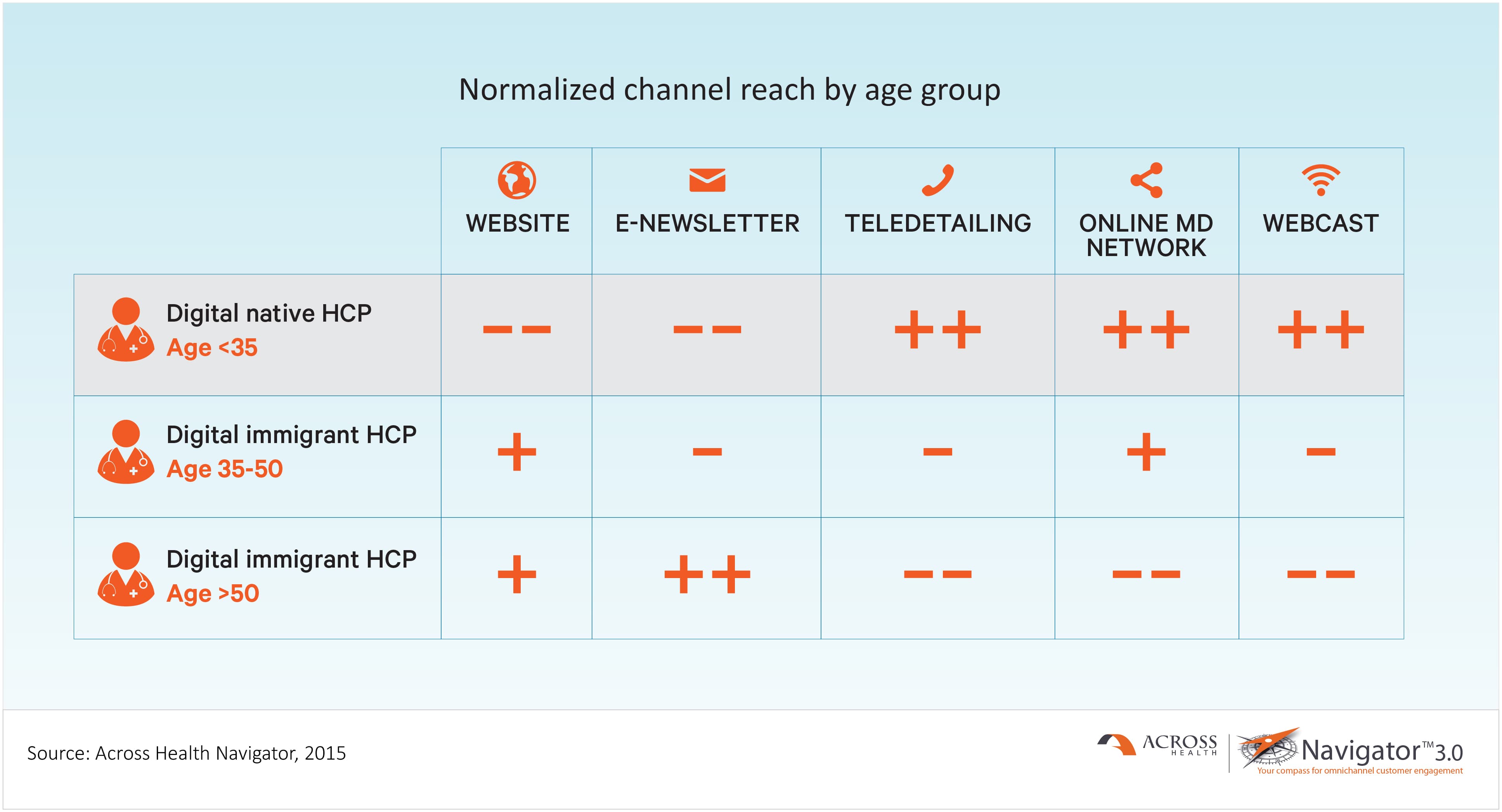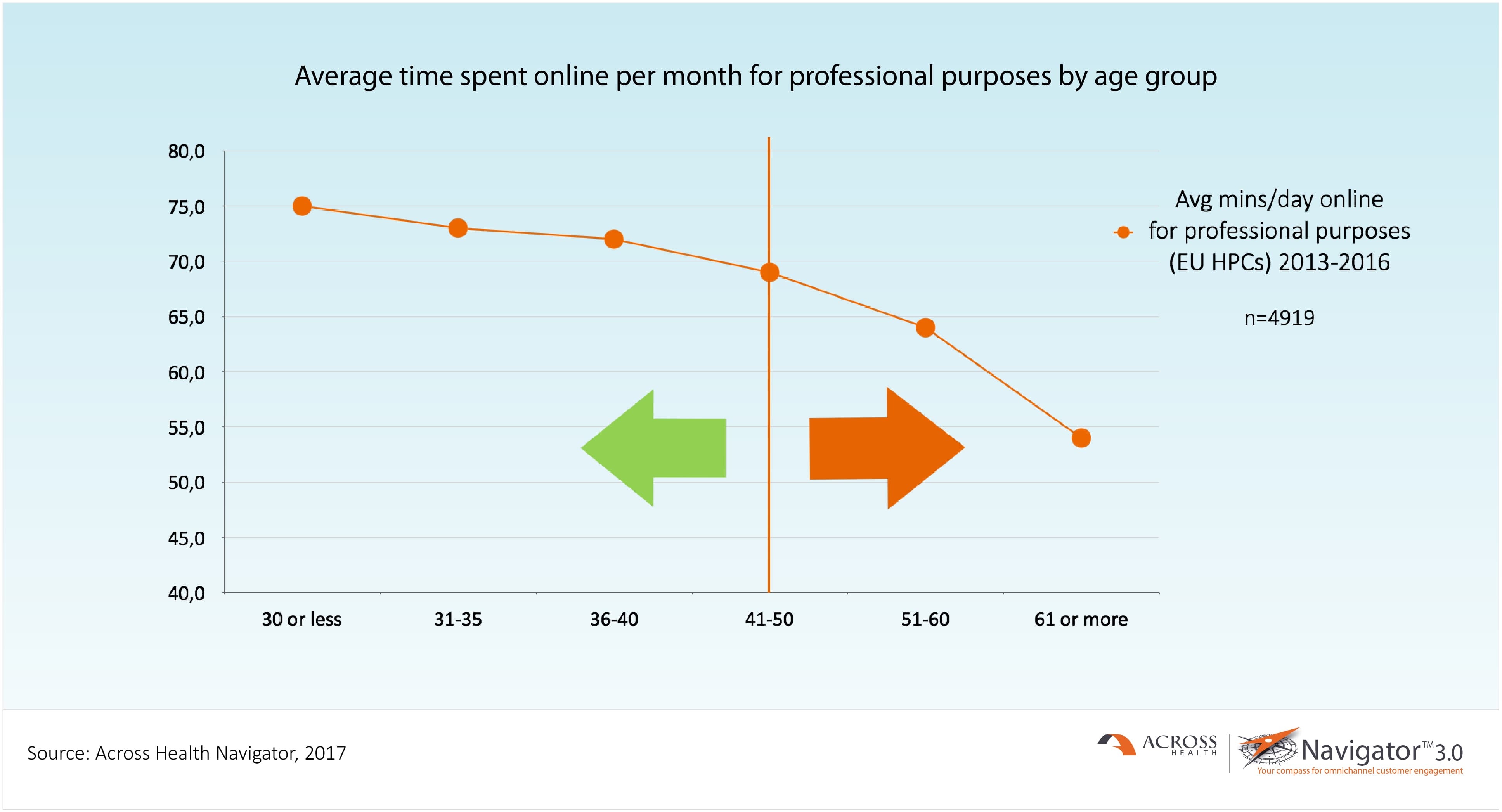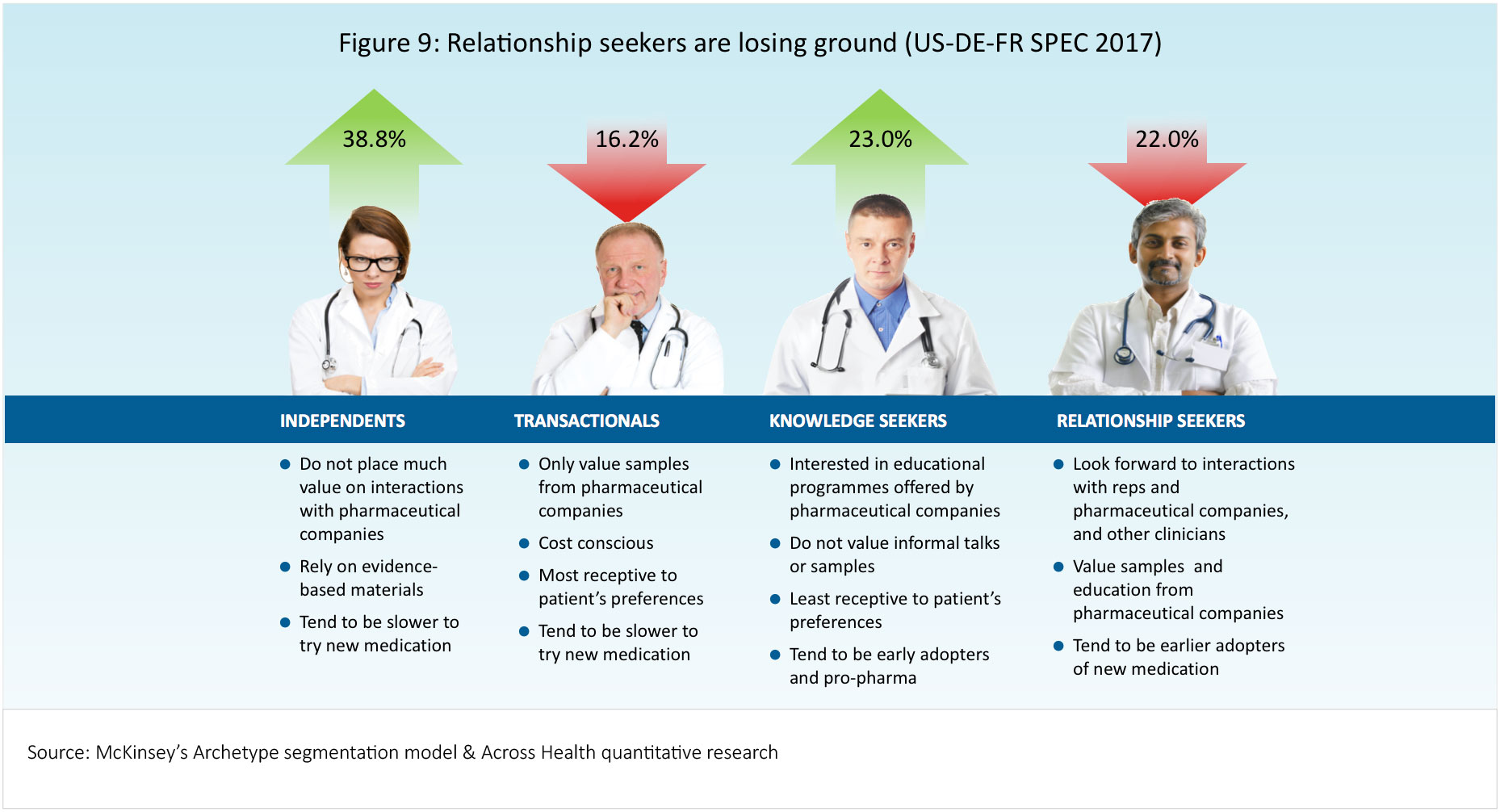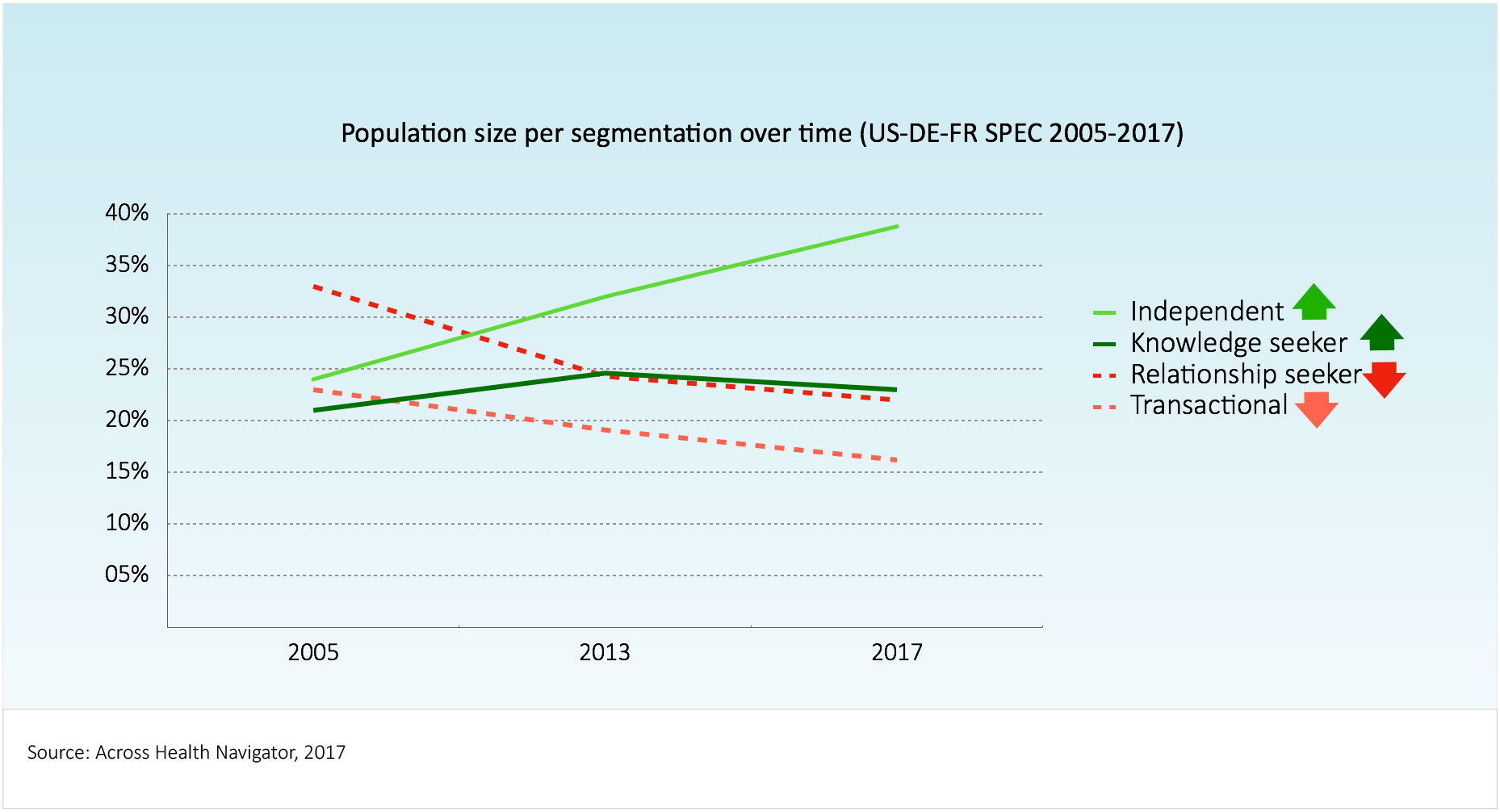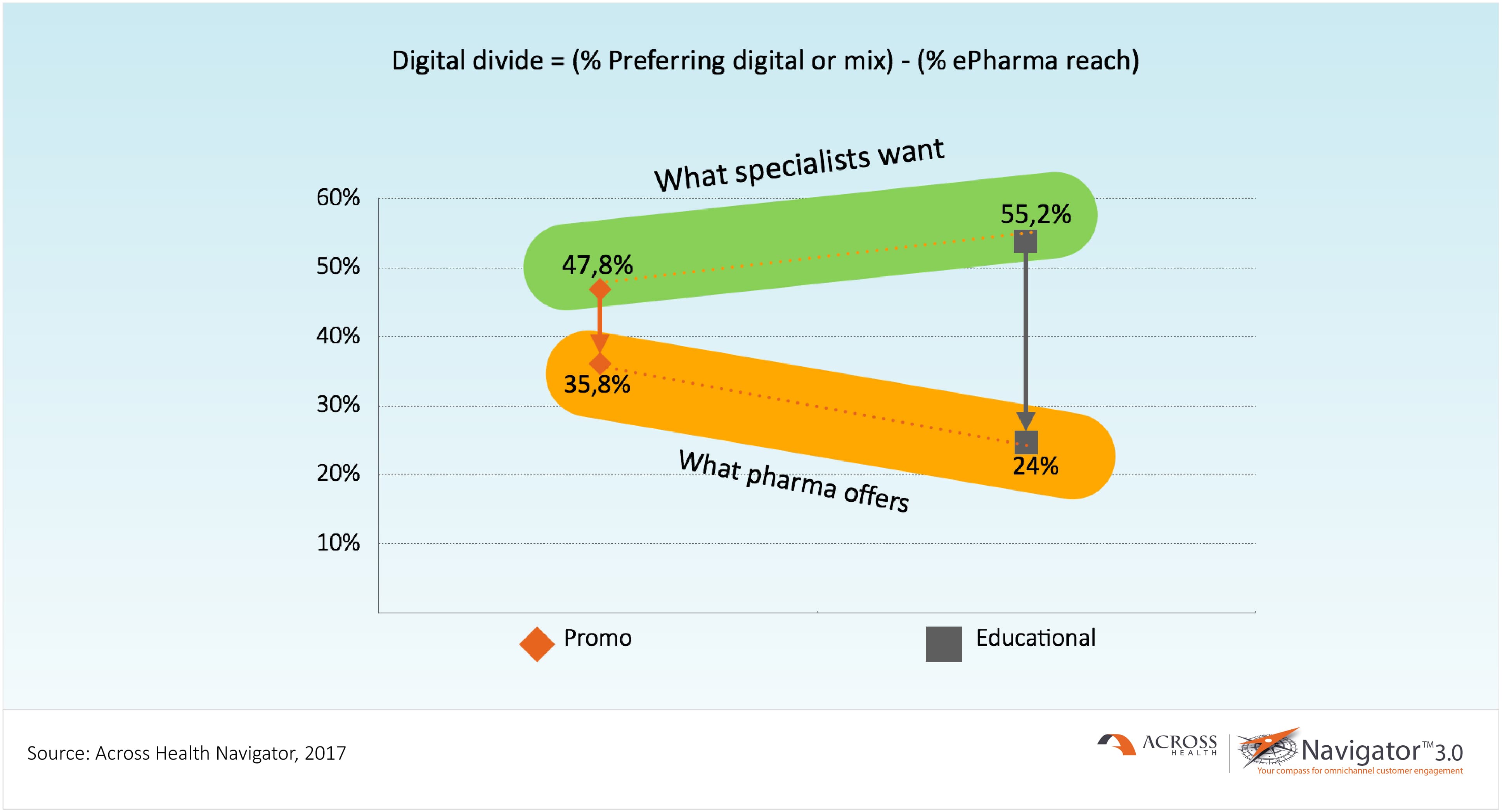Having worked closely with the pharmaceutical industry for the past 17 years, I have witnessed many changes and new trends rise and fall. However, in recent years there has been a dramatic shift in the medical education needs and preferences of HCPs. Unlike other trends, this shift is accelerating and Pharma is in real danger of being left behind.
Big data, bigger data and enormous data…
Big data, real world evidence, NCEs, new indications, faster, more efficient clinical trials, combination therapies, biomarkers and diagnostics… the volume of medical information is expanding faster than HCPs can assimilate, and apply, effectively. This is as true in education and patient care as it is in research. In 1950, medical knowledge and data doubled every 50 years; in 1980, it was 7 years; and in 2010, 3.5 years. In 2020 it is projected to be 0.2 years: just 73 days1. Lynda Chin, MD and Greg Satell recently contextualized this challenge in an article called “How Physicians Can Keep Up with the Knowledge Explosion in Medicine”.
| "Imagine an oncologist with more than a decade of practice experience is evaluating a lung cancer patient today. During her training years ago, there would have been a handful of therapy options to consider. Today there are dozens of additional options, in addition to hundreds of open clinical trials, each representing a potentially more effective treatment for the patient. Not only does she have to know about these new drugs and the active clinical trials, she also should be up-to-date on all of the published articles in this area so she can understand the science behind each therapy option in order to make the best decisions for her patient." |
Evidently, adding (even) more content, material and channels will not be an effective coping strategy to this rising tide. Rather, it calls for a fundamental change in the way HCPs keep up to date with new data and ideas which will change how they practice medicine.
New kids on the block
At the same time as this knowledge explosion, HCPs themselves are changing. We are witnessing the rise of the digital native HCP – defined as those who completed their studies in the digital age. These HCPs have very specific learning requirements, driven by their experiences through medical school and very different channel preferences. Given that 70% of the total HCP population will be a digital native by 2020, we need to clearly understand how these new HCPs want to learn, assimilate the mountain of data and apply it effectively to benefit the health and wellbeing of their patients.
For example, we see that digital natives have a much greater affinity for newer, innovative channels such as webcasts, teledetailing, and HCP social networks; while older ‘digital immigrants’ are happy with email and the occasional static website page. Also, when you look at the time spent online for professional purposes there is also a clear cut-off at the age of 50 years.
The rise of the independents
However, one can’t segment a population by age alone. To get a clearer picture of the evolution of the HCP landscape, we need to look at the relationship they have with Pharma. A good lens is McKinsey’s Archetype segmentation.
When we look at the preferences of HCPs over time2, we see a clear trend throughout Specialists in the EU (n=4084). The conservative, fact-based ‘independents’ are on the rise, and the rep-friendly, progressive ‘relationship seekers’ are generally in decline. While this is probably not in itself a huge surprise, this has a profound effect on how the industry should think about sharing data and information.
For instance, while conservative independents do not place much value on pharma interaction, knowledge seekers hold educational programmes provided by pharma in high esteem. As the blend of archetypes changes, so should the blend of communication tactics and channels.
The digital divide
The old model breaks down further when we look at the number of HCPs who would like to communicate digitally with pharma (the ‘demand’), and the amount of those who already do. We call the gap between these two numbers the ‘digital divide’, and there is a glaring difference when you compare digital promotional information and medical educational information.
Looking at this over time for EU5 specialists (n=4,084) you see the digital divide for education is not only significantly higher than for promo materials, but is growing. In contrast, the promotional divide is shrinking.
Conclusion
Bringing all this together, the HCPs of today (and, more importantly, of tomorrow) have specific medical educational needs and channel preferences. Identifying your key segments and then understanding their medical educational needs before embarking on any project or tactic is critical to ensure both the effectiveness of campaigns, and cost-efficiency of delivery.
What is eMedical?
At Across Health we design and deliver evidence-based NextGen eMed strategy, tactics and impact measurement across the entire product lifecycle:
Medical Navigator: unique customer insights to “navigate” your way to fact-based right channel, right frequency, right content & context, right 3d-party media and benchmarking information.
eMedical strategy campaign development – following a proven stepwise approach from audience segmentation, objective setting, channel selection to KPI setting.
eMedical training and digital transformation workshops – interactive education focused on best practices and case studies.
eLearning/CME – increasing educational reach at low incremental costs
Virtual congresses – using the latest technology to bring the congress to the HCP
Self-service portals – Online medical education and information portal open and ready 24/7
Peer-to-peer interaction – webinars, podcasts, eMSLS and eKOLs, best practice approaches to enable you to effectively collect and communicate your data
Extending the standalone – supporting offline with online, extending the life and value of your standalone event
Third-party media optimization – how to select the best partner(s) for third-party media (websites, eNewsletters, journals, congresses, apps, communities, …)
Customer engagement measurement – how to define & measure impact of your omnichannel medical efforts through a proven mix of qualitative & quantitative KPIs.
For more information on any of this please contact us:
Ben Harbour, Across Health eMedical expert and UK Managing Director
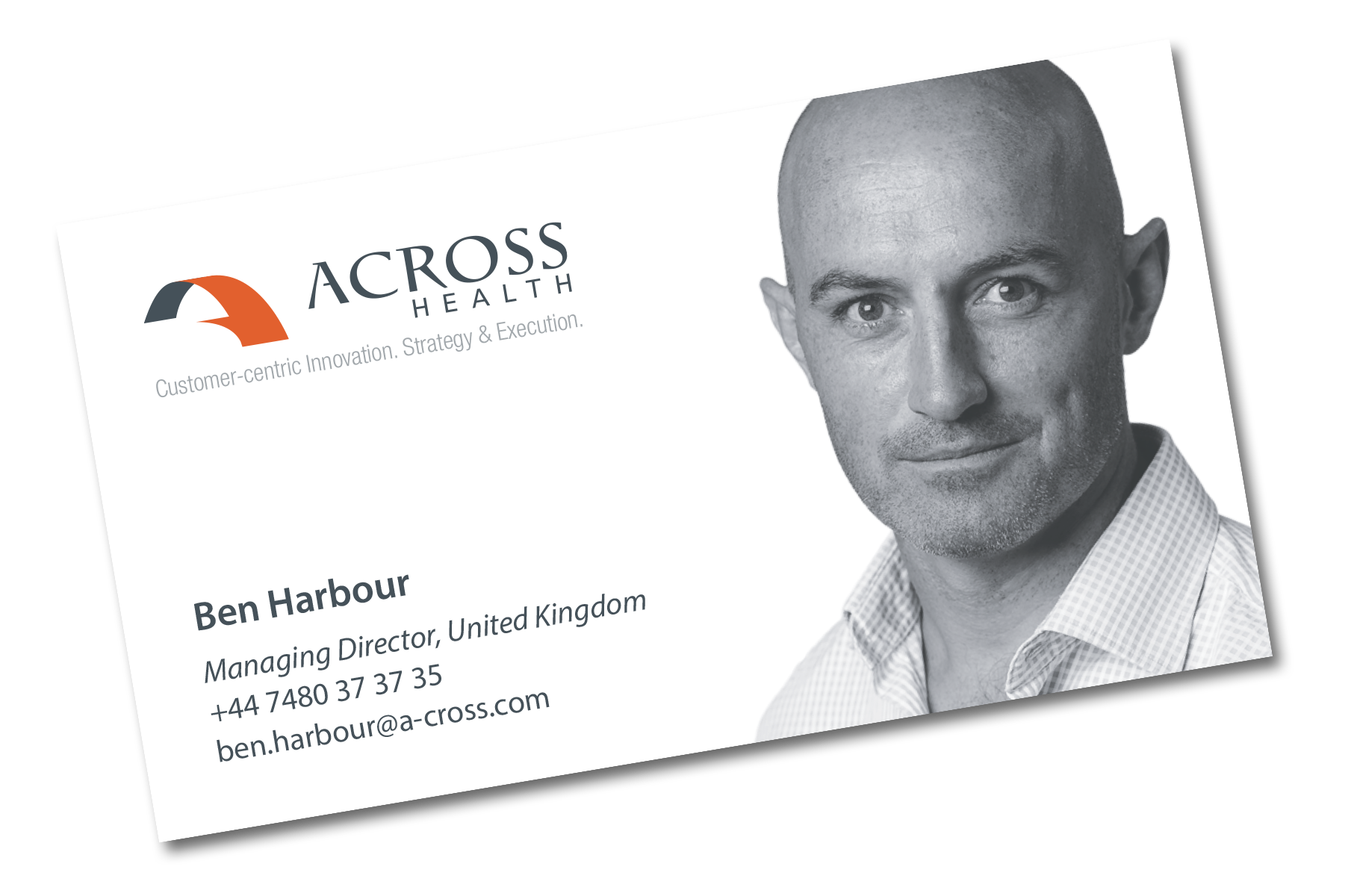
Dr. Lee-Jay Bannister, Snr Medical Consultant and Medical Education expert
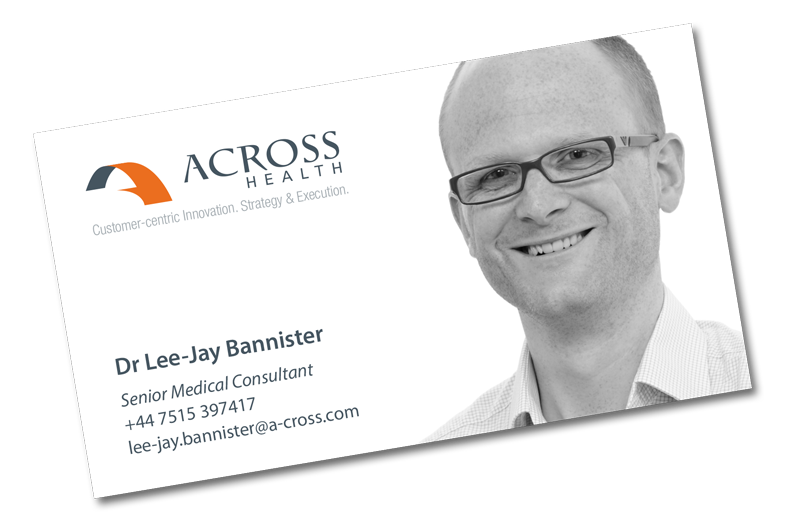
1 Trans Am Clin Climatol Assoc. 2011; 122: 48–58.
2 The Across Health navigator dataset includes the preference data for over 15,000 HCPs since 2007, and offers a robust look at the development of digital tools over time.





